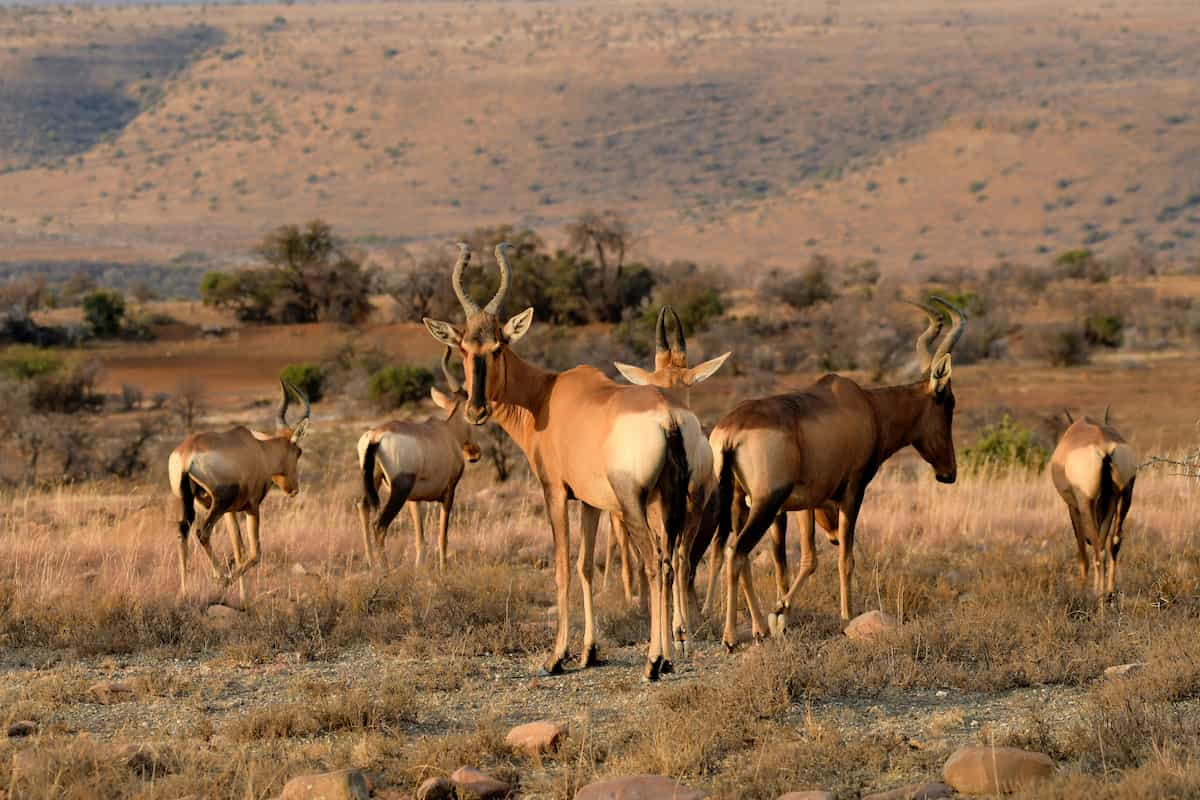Many animals with horns roam Africa’s savannah grasslands and rainforest. But apart of cattles, which other African animals with horns do you know? Read on to discover seven amazing African animals with horns.
Join our Spotcovery Global Black Community Facebook Group for early access to exclusive content and to share in a lively discussion.
Become an insider. Subscribe to our newsletter for more top trending stories like this!
African Elephants: Gentle Giants With Impressive Tusks
In the heart of Africa’s wilderness, you’ll find the African elephants, the gentle giants of the land. They possess a feature that captures attention like no other, their magnificent tusks. These elongated, ivory riches aren’t just for show; they play a vital role in the elephants’ lives.
Elephants’ tusks, curving upward like crescent moons, serve as tools of communication. It allows these intelligent beings to convey emotions and intentions to one another. But it’s not just about expressing feelings; these tusks are formidable weapons of defense against predators and, sadly, threats posed by humans.
Fascinated about Elephants? Get a book on Amazon to learn more about them.
People Also Read: Top 10 Unique Things to Do in Kenya
Majestic Rhinoceros: Guardians of the Grasslands
Enter the African grassland, chances are you’ll encounter the formidable guardians of this realm – the rhinoceros. Two distinct species of rhinos live in the African grassland – the black and the white rhino. Interestingly, the “white” in white rhino is a distortion of the Afrikaans word “wijde,” referring to their broad mouths, not their color.
A great effort is being directed towards protecting these Majestic Rhinoceros from the brink of extinction. Organizations and local communities are joining forces to combat poaching and raise awareness about the critical role rhinos play in maintaining the delicate balance of their ecosystems.
Spiraled Elegance: Greater Kudu and Its Remarkable Horns
In the dappled shadows of African woodlands, a true embodiment of elegance roams – the greater kudu. With its intricate spiraled horns, the kudu stands as a living work of art, a masterpiece sculpted by nature.
The male kudu’s magnificent horns aren’t just for show; they speak volumes about age and status. The twists and turns of these horns symbolize the kudu’s journey through life, with each curve telling a story of experience and dominance.
But these elegant animals’ horns aren’t just ornamental. They also serve a practical purpose, allowing the kudu to navigate dense vegetation and defend itself against predators.
The kudu’s habitat, with its mix of thick forests and open spaces, has shaped these horns into the perfect blend of beauty and functionality. You can find fully polished Kedu horns on Amazon. It can be used to make traditional music.
People Also Read: African Mbuti Tribe: Facts to Know About the Shortest People in the World
Oryx: Surviving the Desert With Long, Straight Horns
Oryx are distinctive antelope with long, straight, slender horns. Both female and male Oryx carry horns. These horns have given the animal the nickname “spear antelope.”
The oryx’s straight horns aren’t just for aesthetics; they’re a vital tool for survival. These magnificent appendages act as radiators, cooling the blood as it flows through their intricate network of vessels. In a land where water is scarce, such ingenious adaptations are essential.
Endurance is the oryx’s hallmark. With the ability to withstand blistering temperatures and traverse arid expanses, they embody the spirit of the desert. These remarkable creatures remind us that life can flourish even in the harshest of environments.
Become an insider. Subscribe to our newsletter for more top trending stories like this!
Ankole-Watusi Cattle: When Domestication Meets Impressive Horns
Scientifically known as Bos taurus indicus, the Ankole-Watusi is a modern American breed of domestic cattle. It originates from the Ankole group of Sanga cattle breeds of east and central Africa.
The Ankole-Watusi’s massive curved horns serve a dual purpose. First, they act as a natural thermostat, aiding in heat dissipation by allowing air to circulate around the body. Second, these horns are a status symbol within the cattle’s culture, reflecting their significance to local communities.
Gazelles: Graceful Princes of the Grasslands
These delicate yet resilient creatures are the embodiment of nature’s poetry. They seamlessly navigate their environment with an elegance that leaves spectators in awe. Gazelles possess a lithe and slender physique, perfectly designed for sprinting across open landscapes.
But what truly captures the imagination is their striking spiral horns, curving gently towards the sky. These horns, though not as massive as those of their counterparts, are nonetheless a testament to their unique beauty.
Gazelles aren’t only swift runners but also nimble jumpers, leaping with astonishing ease to evade predators. Their keen senses and quick reflexes make them a symbol of survival in the wild.
Impala: The Graceful Acrobat of the Savanna
In the African savanna, where life dances to the rhythm of nature, you’ll find the Impala. These sleek antelopes have mastered the art of survival in a world where speed and finesse are essential.
Impalas, with their reddish-brown coats and elegant lyre-shaped horns, are known for their remarkable athleticism. They can leap gracefully and powerfully, clearing impressive distances in a single bound, effortlessly evading predators that lurk in the tall grass.
These acrobatic wonders are not just physically gifted; they are also social creatures, often seen in large herds. Their sharp eyes and ears serve as a collective early warning system, alerting the group to approaching danger.
The African savannah grasslands and rainforest is graced with horned African animals. Each horned animal tells a tale of resilience and connection to nature. As guardians of these wonders, we must embrace conservation, ensuring their stories continue to unfold. Get books on Amazon if you would love to learn more about Africa and its wildlife.
People Also Read: Côte d’Ivoire Unveiled: A Front Row Seat to West Africa’s Vibrant Gem
Nearly 80% of consumers visit directories with reviews to find a local business. List your business for free in our exclusive Spotcovery Black-Owned Business Directory.
Spotcovery offers unique and fresh daily content on Black culture, lifestyle, and experiences. We talk about everything black, black people, black-owned and black-owned businesses. We also deliver authentic and relevant content that will inform, inspire and empower you! The future of black media is critical to today’s black experience! Our primary audience includes African Americans, Africans, Afro-Caribbean, and people of African heritage. Black culture is for the culture!
Become an insider. Subscribe to our newsletter for more top trending stories like this!





